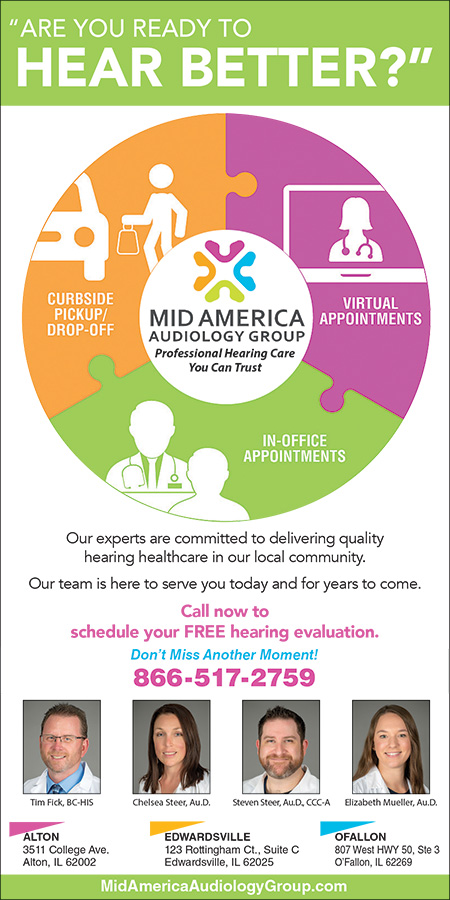 It’s not unusual to have occasional trouble finding the right word or remembering where you put things, especially as we age. But persistent difficulty with memory, cognition and ability to perform everyday tasks might be signs that something more serious is happening to a loved one’s brain.
It’s not unusual to have occasional trouble finding the right word or remembering where you put things, especially as we age. But persistent difficulty with memory, cognition and ability to perform everyday tasks might be signs that something more serious is happening to a loved one’s brain.
Dementia isn’t actually a disease, according to the Mayo Clinic. It’s a catch-all term for changes in the brain that cause a loss of functioning that interferes with daily life. Dementia can diminish focus, the ability to pay attention, language skills, problem-solving and visual perception. It also can make it difficult for a person to control his or her emotions and lead to personality changes.
More than six million Americans are living with Alzheimer’s dementia, according to a 2021 report by the Alzheimer’s Association. Alzheimer’s disease is the leading cause of dementia, accounting for 60 percent to 70 percent of cases, but a range of brain illnesses can lead to the condition.
A loved one showing symptoms of dementia needs to see a medical expert who can conduct tests and come up with a diagnosis. If a loved one has dementia, you’ll want to plan how you will manage that care, especially as the condition progresses.
But it’s also important to rule out other medical conditions with dementia-like symptoms that may disappear with treatment such as infections and side effects of medications.
WHAT TO WATCH FOR
Here are some of the warning signs identified by dementia experts and mental health organizations:
• Difficulty with everyday tasks. Everyone makes mistakes, but people with dementia may find it increasingly difficult to do things like keep track of monthly bills or follow a recipe while cooking, the Alzheimer’s Association says. They also may find it hard to concentrate on tasks, take much longer to do them or have trouble finishing them.
• Repetition. Asking a question, hearing the answer and then repeating the same question 15 minutes later, or telling the same story about a recent event multiple times, are causes for concern.
• Communication problems. Observe if a loved one has trouble joining in conversations or following along with them, stops abruptly in the middle of a thought or struggles to think of words or the name of objects.
• Getting lost. People with dementia may have difficulty with visual and spatial abilities. That can manifest itself in problems like getting lost while driving, according to the Mayo Clinic.
• Personality changes. A loved one who begins acting unusually anxious, confused, fearful or suspicious; becomes upset easily; or loses interest in activities and seems depressed is cause for concern.
• Confusion about time and place. Loved ones who forget where they are or can’t remember how they got there should raise alarms. Another worrisome sign is a person becoming disoriented about time — for example, asking on a Friday whether it’s Monday or Tuesday.
• Troubling behavior. If your family member seems to have increasingly poor judgment when handling money or neglects grooming and cleanliness, pay attention.
Some people who experience memory loss or have difficulty with attention, decision-making language or reasoning may have a condition known as mild cognitive impairment. The condition causes a noticeable decline, but the changes are less severe than with dementia and a person can still perform normal daily activities, according to the Cleveland Clinic. People with mild cognitive impairment are at an increased risk of developing dementia.
When your loved one is displaying troubling symptoms, a trip to a primary care physician is often the first step. But to get a definitive diagnosis, you’ll need to see a specialist such as a neurologist, geriatrician or geriatric psychiatrist.
Diseases that cause dementia
According to the National Institute on Aging and Mayo Clinic, these conditions are the leading causes of dementia. Many patients have mixed dementia, a combination of two or more types, such as Alzheimer’s and vascular dementia.
• Alzheimer’s disease. Alzheimer’s is characterized by amyloid plaques and tangled fibers in the brain and by a loss of connections between nerve cells. Damage initially appears in the hippocampus, an area of the brain involved in memory formation, and gradually spreads.
• Vascular dementia. The second most common type of dementia is caused from damage to the vessels that supply blood to the brain. It tends to affect focus, organization,  problem-solving and speed of thinking more noticeably than memory.
problem-solving and speed of thinking more noticeably than memory.
• Lewy body dementia. Abnormal protein deposits in the brain, called Lewy bodies, affect brain chemistry and lead to problems with behavior, mood, movement and thinking.
• Frontotemporal disorders. Degenerative damage to the brain’s frontal and temporal lobes is the most common cause of dementia in people age 65 and younger. Symptoms might include apathy; difficulty communicating, walking or working; emotional changes; and impulsive or inappropriate behaviors.


